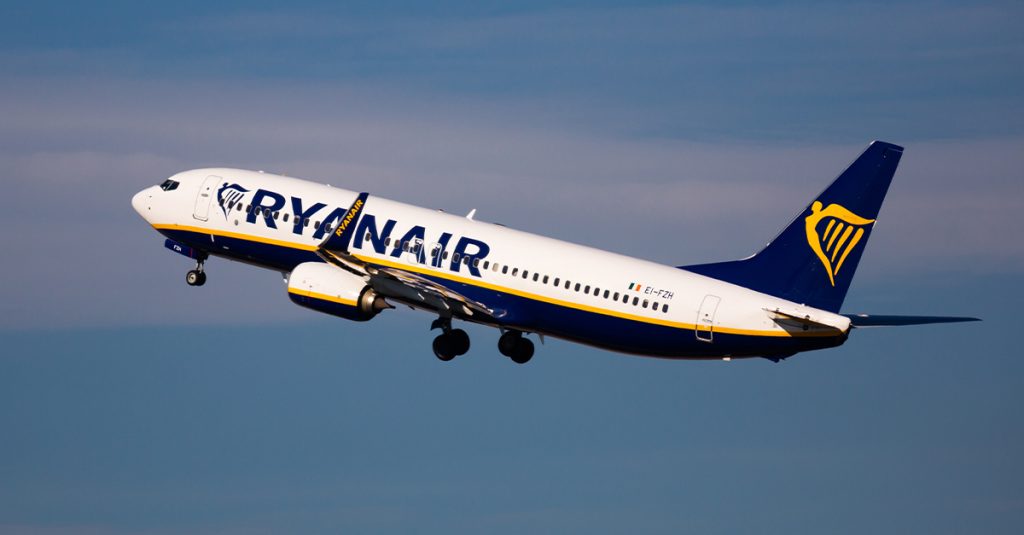Ryanair has announced the return of its services to Tel Aviv from June 3, marking a significant development in its operational strategy.
This comes after the reopening of Terminal 1 at Israel’s Ben Gurion International Airport, a dedicated hub for low-cost carriers. The development promises to revitalise Ryanair’s presence in the region.
Resumption of Flights to Tel Aviv
Ryanair has officially declared the recommencement of its services to Tel Aviv, Israel, starting June 3. This follows the reopening of Terminal 1 at Ben Gurion International Airport, designated for low-cost carriers. Previously, Ryanair had stopped services mere weeks after their initial resumption, attributing the suspension to terminal-related challenges. The airline is set to offer 40 flights a week linking key cities including Athens, Bari, Berlin, Budapest, Malta, Milan, and Paphos.
Background on the Suspension
Ryanair’s decision to suspend flights in February came after an already prolonged absence linked to the Gaza conflict. The initial return to Tel Aviv was short-lived as the airline sought clarity over the availability of Terminal 1, which caters specifically to budget airlines. The airport’s decision to repurpose this terminal as a low-cost hub has now paved the way for Ryanair’s renewed operations.
A Ryanair spokesperson commented on the airport’s move positively, stating, ‘It is great news that Ben Gurion airport is re-opening Terminal 1, which has enabled Ryanair to resume our Tel Aviv operations from Monday, June 3.’
Competitive Environment
Ryanair’s return is part of a broader resumption of flights to Tel Aviv by several airlines. Following the terminal’s reopening, EasyJet has also resumed connections from Luton Airport while British Airways offers services from Heathrow. Wizz Air had already begun its Tel Aviv route starting March 1.
In contrast, Virgin Atlantic has taken a more cautious approach, with its flights from Heathrow to Tel Aviv earmarked to return only by September 4. This staggered resumption evidences a varying strategic response among carriers as they navigate post-pandemic travel challenges.
Strategic Implications for Ryanair
The decision to resume operations in Tel Aviv aligns with Ryanair’s strategy to maximise reach and leverage low-cost travel demand. By operating multiple weekly flights from key European cities, Ryanair positions itself strategically in a market with a significant expatriate community and touristic appeal. This move is expected to drive competition between airlines offering services to Israel from across Europe.
Moreover, Ryanair’s aggressive pricing strategies could potentially undercut competitors, attracting both budget-conscious travellers and those seeking operational flexibility. Such strategies could enable Ryanair to strengthen its foothold in this lucrative market.
Market Reactions and Expectations
Airline industry analysts are closely watching Ryanair’s renewed operations, expecting that it may lead to a price war with airlines reinstating Tel Aviv routes. Given Ryanair’s reputation for cost leadership, the airline could stimulate further competition, benefitting consumers.
Market responses also reflect an optimism that the reopening of Tel Aviv routes might signal a return to pre-conflict tourism levels. The move could further invigorate the local economy, offering tourists more travel options and potentially leading to a boost in related sectors such as hospitality and services.
Challenges Ahead
Despite the positive developments, challenges remain. The region’s geopolitical instability isn’t completely resolved, and airlines must stay vigilant. The resumption is contingent on sustained peace and security, factors which are beyond aviation control.
Additionally, operational adjustments might be necessary to accommodate any new regulations or restrictions that could arise. Ryanair, like other airlines, needs to address these potential hurdles to ensure their operations remain unaffected and profitable in the long term.
Looking Forward
As Ryanair resumes its Tel Aviv flights, the aviation industry looks to see how the dynamics of travel to and from Israel may evolve. Indeed, the reopening of Terminal 1 is crucial, offering hope for increasing passenger volumes and restoring confidence in the route’s viability.
The aviation industry is poised to observe the impact of Ryanair’s renewed operations in Tel Aviv, with potential implications for pricing and competition.
The reopening of Terminal 1 heralds a positive step towards stabilising the aviation market in the area, fostering hopes of increased tourism and economic recovery.

